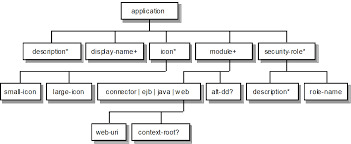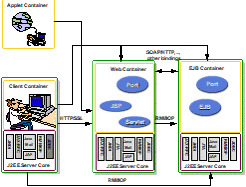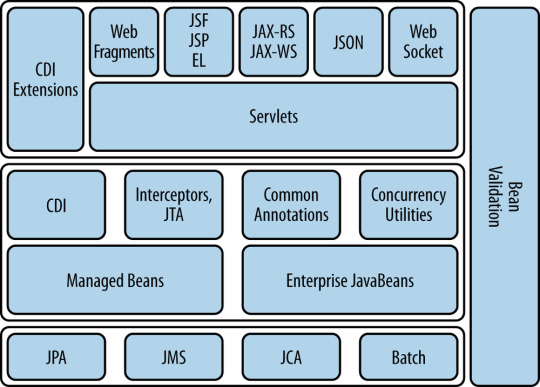#java j2ee training
Explore tagged Tumblr posts
Text
Does learning Java increase my salary?
1. Introduction to the Java Job Market
Java is still one of the hottest programming languages out there. Whether you're just starting or have been coding for a while, knowing Java can really help your career. A common question is: Does learning Java boost my paycheck? The answer is yes—companies really want people who know Java because it's so flexible for web, mobile, and big business apps. Key topics include Java programming, Java developers, and job roles related to it.
Key Point: Java skills are in demand across different industries and can help increase your salary.
2. Java's Popularity and Market Demand
Big names like Amazon, Netflix, and Google use Java because it handles large-scale apps well. So, does learning Java increase my salary? Definitely. Employers will pay a premium for those who are good at Java. Key terms include Java software development, full stack, and backend developer.
Key Point: There’s a strong demand for Java devs, which leads to better pay and job security.
3. Java Skills and Salary Growth
Having Java skills gives you an edge. Companies are looking for people who know frameworks like Spring Boot and tools like Maven. Will learning Java increase my salary? For sure. With the right certifications and experience, you can earn more. And signing up for a Java course in Coimbatore can really help solidify your skills.
Key Point: Specialized Java knowledge can lead to promotions and salary increases.
4. Role of Certifications in Salary Hike
Getting a Java certification is a smart way to stand out. A lot of people choose the Java Full Stack Developer Course in Coimbatore for hands-on practice. Certifications prove your skills, and the answer to the question: Does learning Java bump up my salary? Yes.
Key Point: Java certifications help validate your skills and can lead to better pay.
5. Java Job Roles and Their Pay Scales
Java jobs range from junior developers to senior architects, and each level comes with higher pay. A Java training in Coimbatore can get you ready for roles like Full Stack Developer or Software Engineer. Is there a salary increase if you learn Java? Absolutely, especially for specialized roles.
Key Point: There are many roles in Java, and each offers attractive salary packages.
6. Java vs. Other Programming Languages in Salary
Java developers often earn more than those working with less popular languages. Unlike some newer languages, Java jobs tend to be more stable. Does learning Java mean better pay? Yes, compared to other languages, Java usually offers more consistent salaries.
Key Point: Java's long-standing presence in the industry generally means better pay than many newer languages.
7. Full Stack Java Developer Salary Benefits
Full Stack Java Developers are among the best paid in tech. Taking a Java Full Stack Developer Course in Coimbatore can prepare you for the job market. Will learning Java increase my salary? For sure—especially in full stack roles where you need to be skilled in both backend and frontend.
Key Point: Full Stack Java positions offer top salaries and are in high demand.
8. Java's Role in Enterprise Applications
Java is key for many enterprise systems. Learning enterprise-level Java can really answer the question: Does it help me earn more? Yes. A training program in Coimbatore that teaches things like Hibernate and JSP is worth considering.
Key Point: Skills in enterprise Java can set you up for well-paying jobs.
9. Local Training Institutes and Career Impact
Joining a local Java course in Coimbatore can boost your earnings. These programs offer hands-on projects and guidance from experts. So, does learning Java help with salary? Yes—local training can lead to quicker job growth.
Key Point: Local Java training can speed up your skills and help with job placements.
10. Final Thoughts and Brand Mention
In summary, does learning Java increase my salary? Yes, through certifications, full stack skills, and local training. Consider a reputable place like Xplore It Corp for training in Coimbatore, offering courses designed to meet job market needs.
Key Point: Xplore It Corp provides practical Java courses that can help you earn more.
FAQs:
1. Does learning Java help me earn more with no experience?
Yes. Even beginners can get better job offers after certified Java training.
2. What’s the average salary after a Java course in Coimbatore?
Freshers typically earn around ₹3-5 LPA, and pay can increase significantly after 1-2 years.
3. Is a Java Full Stack Developer Course in Coimbatore worth it?
Definitely. Full stack developers are in demand and usually earn 20-30% more.
4. How long before I see salary benefits after Java training?
Usually, you can expect to see salary increases within 6-12 months after completing the course.
5. Can I switch to Java and expect a pay increase?
Yes. Many people move from non-tech jobs to Java and see a boost in their salary.
#Java programming#Java developer#Java applications#Core Java#Java certification#Java frameworks#Spring Framework#Java full stack#Java backend developer#Java software development#Java training course#Java job roles#Object-oriented programming#Java IDE#Java runtime environment#Java REST API#J2EE#Java vs Python#Java vs JavaScript#Secure Java coding#Java deployment#Java enterprise solutions#Java bootcamp#Java multithreading#Java performance optimization
0 notes
Text
java full stack developer course
The Java Full Stack Developer Course is designed to equip students with the essential skills needed to develop both the front-end and back-end components of a web application. This comprehensive course covers a wide range of technologies, enabling you to build end-to-end solutions from scratch using Java. Whether you are a beginner or looking to enhance your skills, this course will guide you through both the foundational and advanced concepts of full-stack development.
1 note
·
View note
Text
Java/J2EE Specialist
and Training and Certification service areas. This role requires advanced technical knowledge in J2EE/Java development, JBoss…. Job Title: Senior Application Systems Analyst – Java/J2EE Specialist Location: Tallahassee, FL (Onsite) Key Responsibilities… Apply Now
0 notes
Text
Advance Java Courses in Delhi/NCR
If you already know the basics of Java and want to enhance your skills, you should join Advance Java courses in Delhi/NCR. Advanced Java is essential for building complex applications and enterprise-level solutions. At SDK ITS SOLUTIONS PVT LTD, we provide the best Advance Java Training in India to help students become industry-ready professionals.
What You Will Learn?
J2EE and Servlets: Learn to create dynamic web applications.
Spring and Hibernate: Understand how to build advanced enterprise applications.
JDBC and Database Connectivity: Work with MySQL, Oracle, and other databases.
RESTful Web Services: Develop web applications with modern APIs.
Live Project Training: Get real-world experience by working on Java live projects.
Why Choose Our Advance Java Course?
Industry-Relevant Curriculum: Our syllabus is designed to meet industry demands.
Hands-on Training: We provide practical knowledge with real-time projects.
Placement Assistance: We help students with job placements in top IT companies.
Flexible Learning Options: Choose from weekday and weekend batches.
Our Advance Java Gurgaon course is designed for students and professionals who want to excel in Java development. If you are looking for a Java training institute in Gurgaon, enroll today and take your career to the next level!
0 notes
Text
J2EE Certified Course: Comprehensive Guide to Enterprise Java Development

Are you ready to dive deeper into the world of Java development? The J2EE (Java 2 Platform, Enterprise Edition) course offered by Jaz Academy. is designed to equip you with the skills necessary to build scalable, secure, and efficient enterprise applications. Whether you’re a beginner or have some Java experience, this course will guide you through the essentials of enterprise development using J2EE technologies.
What is J2EE?
J2EE stands for Java 2 Platform, Enterprise Edition and is a platform that provides a robust environment for developing multi-tiered, distributed applications. It is widely used in the enterprise software industry due to its scalability, reliability, and flexibility.
Why Choose for J2EE Training?
Jaz Academy. provides a comprehensive curriculum for J2EE, designed by industry experts. Here are a few reasons why you should choose this course:
Expert Trainers: Learn from professionals with real-world experience in enterprise application development.
Hands-on Learning: Gain practical exposure through projects that simulate real-world scenarios.
Latest Technologies: Stay ahead of the curve with updated course content on the latest tools and frameworks used in J2EE development.
Flexible Learning Options: Whether you're looking for in-person or online classes, Jaz Academy offers flexible learning formats to suit your needs.
What Will You Learn in the J2EE Course?
In this course, you will explore key J2EE concepts and technologies, including:
Servlets and JSP (JavaServer Pages): Understand how to create dynamic web applications using Servlets and JSP.
EJB (Enterprise JavaBeans): Learn how to build reusable and scalable business logic components.
JDBC (Java Database Connectivity): Learn how to connect Java applications with databases.
Web Services: Explore the fundamentals of developing SOAP and RESTful web services.
JPA (Java Persistence API): Master database management and object-relational mapping (ORM).
Security and Transactions: Understand how to implement security measures and manage transactions within J2EE applications.
Real-World Applications of J2EE
J2EE is widely used for building large-scale enterprise applications such as:
Banking Systems: Robust systems that require secure transactions and high availability.
E-commerce Platforms: Scalable platforms that can handle large volumes of users and transactions.
Customer Relationship Management (CRM) Systems: Enterprise applications that manage business relationships and data.
How Jaz Academy.Helps You Achieve Your Career Goals
Completing the J2EE course at Jaz Academy provides you with a strong foundation to enter the world of enterprise Java development. The course ensures you gain proficiency in both the core concepts and the practical applications, making you job-ready for roles like:
Java Developer
J2EE Developer
Software Architect
Backend Developer
Conclusion
J2EE remains a powerful and versatile technology for enterprise application development. Whether you're looking to improve your Java skills or break into enterprise software development,Jaz Academy. offers the perfect course to help you succeed. Enroll today and take the first step towards becoming a skilled Java developer!
This structure highlights the J2EE course content while referring to Jaz Academy.as the trusted provider of this training. You can modify it further to align with your writing style or the specifics of the course offered at Jaz Academy.
0 notes
Text
No 1 Training Institute - Apponix Technologies
Java J2EE Training Course in Hubli, Delivered by Working Professionals. Placement Assurance | Request Demo Class Today | Affordable Price
0 notes
Text
0 notes
Text
Best J2EE Java Training Course in Coimbatore
Java training in Coimbatore is best at Upshot Technologies. We give Real-time Project-Oriented Java Course in Coimbatore with comprehensive course topics briefing, practical training of real-time project situations.

0 notes
Text
0 notes
Text
0 notes
Text
0 notes
Text
0 notes
Text
Java training course
Java course
Java Platform, Standard Edition (Java SE) is a computing platform for development and deployment of portable code for desktop and server environments.Java SE was formerly known as Java 2 Platform, Standard Edition (J2SE).
The platform uses the Java programming language and is part of the Java software-platform family. Java SE defines a range of general-purpose APIs—such as Java APIs for the Java Class Library—and also includes the Java Language Specification and the Java Virtual Machine Specification. OpenJDK is the official reference implementation since version 7.
Nomenclature, standards and specifications:
The platform was known as Java 2 Platform, Standard Edition or J2SE from version 1.2, until the name was changed to Java Platform, Standard Edition or Java SE in version 1.5. The "SE" is used to distinguish the base platform from the Enterprise Edition (Java EE) and Micro Edition (Java ME) platforms. The "2" was originally intended to emphasize the major changes introduced in version 1.2, but was removed in version 1.6. The naming convention has been changed several times over the Java version history. Starting with J2SE 1.4 (Merlin), Java SE has been developed under the Java Community Process, which produces descriptions of proposed and final specifications for the Java platform called Java Specification Requests (JSR).[6] JSR 59 was the umbrella specification for J2SE 1.4 and JSR 176 specified J2SE 5.0 (Tiger). Java SE 6 (Mustang) was released under JSR 270.
Java Platform, Enterprise Edition (Java EE) is a related specification that includes all the classes in Java SE, plus a number that are more useful to programs that run on servers as opposed to workstations.
Java Platform, Micro Edition (Java ME) is a related specification intended to provide a certified collection of Java APIs for the development of software for small, resource-constrained devices such as cell phones, PDAs and set-top boxes.
The Java Runtime Environment (JRE) and Java Development Kit (JDK) are the actual files downloaded and installed on a computer to run or develop Java programs, respectively.
J2EE Specifications
Jakarta EE includes several specifications that serve different purposes, like generating web pages, reading and writing from a database in a transactional way, managing distributed queues.
The Jakarta EE APIs include several technologies that extend the functionality of the base Java SE APIs, such as Jakarta Enterprise Beans, connectors, servlets, Jakarta Server Pages and several web service technologies.
Web specifications
Jakarta Servlet: defines how to manage HTTP requests, in a synchronous or asynchronous way. It is low level and other Jakarta EE specifications rely on it;
Jakarta WebSocket: API specification that defines a set of APIs to service WebSocket connections;
Jakarta Faces: a technology for constructing user interfaces out of components;
Jakarta Expression Language (EL) is a simple language originally designed to satisfy the specific needs of web application developers. It is used specifically in Jakarta Faces to bind components to (backing) beans and in Contexts and Dependency Injection to named beans, but can be used throughout the entire platform.

Web service specifications
Jakarta RESTful Web Services provides support in creating web services according to the Representational State Transfer (REST) architectural pattern;
Jakarta JSON Processing is a set of specifications to manage information encoded in JSON format;
Jakarta JSON Binding provides specifications to convert JSON information into or from Java classes;
Jakarta XML Binding allows mapping XML into Java objects;
Jakarta XML Web Services can be used to create SOAP web services.

Enterprise specifications
Jakarta Activation (JAF) specifies an architecture to extend component Beans by providing data typing and bindings of such types.
Jakarta Contexts and Dependency Injection (CDI) is a specification to provide a dependency injection container;
Jakarta Enterprise Beans (EJB) specification defines a set of lightweight APIs that an object container (the EJB container) will support in order to provide transactions (using JTA), remote procedure calls (using RMI or RMI-IIOP), concurrency control, dependency injection and access control for business objects. This package contains the Jakarta Enterprise Beans classes and interfaces that define the contracts between the enterprise bean and its clients and between the enterprise bean and the ejb container.
Jakarta Persistence (JPA) are specifications about object-relational mapping between relation database tables and Java classes.
Jakarta Transactions (JTA) contains the interfaces and annotations to interact with the transaction support offered by Jakarta EE. Even though this API abstracts from the really low-level details, the interfaces are also considered somewhat low-level and the average application developer in Jakarta EE is either assumed to be relying on transparent handling of transactions by the higher level EJB abstractions, or using the annotations provided by this API in combination with CDI managed beans.
Jakarta Messaging (JMS) provides a common way for Java programs to create, send, receive and read an enterprise messaging system's messages.

Other specifications
Validation: This package contains the annotations and interfaces for the declarative validation support offered by the Bean Validation API. Bean Validation provides a unified way to provide constraints on beans (e.g. JPA model classes) that can be enforced cross-layer. In Jakarta EE, JPA honors bean validation constraints in the persistence layer, while JSF does so in the view layer.
Jakarta Batch provides the means for batch processing in applications to run long running background tasks that possibly involve a large volume of data and which may need to be periodically executed.
Jakarta Connectors is a Java-based tool for connecting application servers and enterprise information systems (EIS) as part of enterprise application integration (EAI). This is a low-level API aimed at vendors that the average application developer typically does not come in contact with.

1 note
·
View note
Text
Best J2EE Java Training Course in Coimbatore
Java training in Coimbatore is best at Upshot Technologies. We give Real-time Project-Oriented Java Course in Coimbatore with comprehensive course topics briefing, practical training of real-time project situations

0 notes